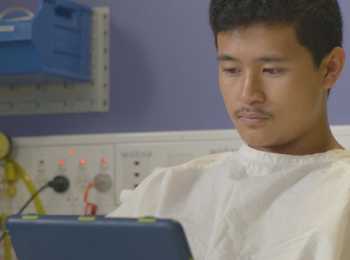When you’re feeling sick, your body is changing or you’re stuck in hospital, sex may be the last thing on your mind. But, when you are feeling better you might wonder about what effect your cancer or cancer treatment might have on your sex life.
How cancer can affect your sex life
It’s normal to be concerned about how cancer might affect your sex life. You might have questions like:
- Will I still be able to have sex?
- Will I still be able to get an erection?
- Will I still be able to have an orgasm?
- Will I still be able to ejaculate?
- Can I masturbate?
- Will I lose my sex drive?
- Will I be less attractive?
Sexual relationships while you’re having treatment
You might wonder whether cancer will affect your ability to have sex now, or in the future. The good news is that unless your doctor tells you otherwise, it is okay to have sex (if you feel like it) while having treatment, but you need to use STI (sexually transmitted infection) prevention methods and/or contraception during any sexual activity. Check with your doctor if there are any other special precautions you need to take.
Cancer treatment might have you feeling washed out and not having much energy for many months or even longer. You may lose your interest in sex, feel unattractive or worry that you will never be able to be sexually active. The main thing to remember is that how you feel right now is temporary and it’s really likely to pass in the future.
If you are still concerned or worried about any symptoms you are experiencing, it’s worth talking to your Youth Cancer Services nurse or someone else in the team you feel comfortable with.
Sex after cancer treatment
Cancer and cancer treatment can affect how you feel about yourself, your body image and sexual feelings towards others, as well as your sexual function (your ability to have and enjoy sex).
Cancer treatment can also leave you feeling ‘washed out’ and with limited energy for many months or even longer. You may have lost interest in sex, feel unattractive and worry that you will never be able to be sexually active again. Canteen has face to face, phone and online counsellors available to support you through this. Visit canteen.org.au/counselling for more information.
If you have a partner, you should talk to them about your concerns. Usually they pass fairly quickly. And until then, you can still have a great relationship without having sex. A great way to start this conversation is by directing them to our 'supporting your partner when they have cancer' guide.
Need more info or advice?
If you have any questions at all about sexual relationships or your sexual health, or need someone to talk to, there are counsellors at Canteen who are available in person, over the phone and online. For more information go to canteen.org.au/counselling.
You can also talk to a member of your Youth Cancer Services team. They can recommend strategies and services to help.
Additionally, if you’re a member of the LGBTQI+ communities and facing cancer, visit our LGBTQI+ and cancer page for more specific and helpful information on common concerns, sexuality and gender identity.


















